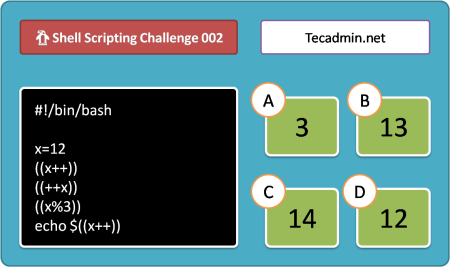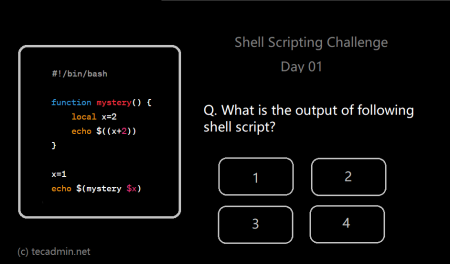Bash, which stands for Bourne-Again SHell, is a popular Unix shell used for scripting. If you work with Bash scripts, it’s important to understand different syntax elements to make your scripts efficient and error-free.
In this article, we’ll explain the differences between the ${} and $() syntax in Bash and show you how to use them.
The ${} Syntax: Parameter Expansion
The ${} syntax in Bash is used for parameter expansion. This means it helps you get and change the value of a variable. The syntax uses a dollar sign ($) followed by curly braces ({}) containing the variable name or an expression. You can do several things with parameter expansion, like extracting part of a string, changing case, and more.
Examples of ${} usage:
- Simple variable expansion:
name="Rahul Kumar" echo ${name} - Substring extraction (getting part of a string):
name="Tecadmin.net" echo ${name:0:4} - Default value assignment (using a default value if the variable is empty):
default_name="Tecadmin" name="" echo ${name:-$default_name}
The $() Syntax: Command Substitution
The $() syntax in Bash is used for command substitution. This means you can run a command and use its output in your script. This is useful when you want to use the result of a command as an argument for another command or store it in a variable.
Examples of $() usage:
- Basic command substitution:
date=$(date) echo "Today's date is $date" - Using command substitution in a loop:
for file in $(ls) do echo "Processing file: $file" done
Comparing ${} and $()
Here are the key differences between ${} and $():
- Purpose: ${} is used for parameter expansion to manipulate and get the value of a variable. $() is used for command substitution to run a command and use its output.
- Syntax: ${} uses curly braces ({}) around the variable name or expression. $() uses parentheses (()) around the command you want to run.
- Usage: Use ${} when you need to work with variables, like extracting part of a string or setting default values. Use $() when you need to run a command and use its output in your script.
Conclusion
Every user must know the differences between ${} and $() in Bash is important for writing good scripts. The key point is ${} is for working with variables, and $() is for running commands and using their output. Keep these differences in mind to make your Bash scripts efficient and accurate.


